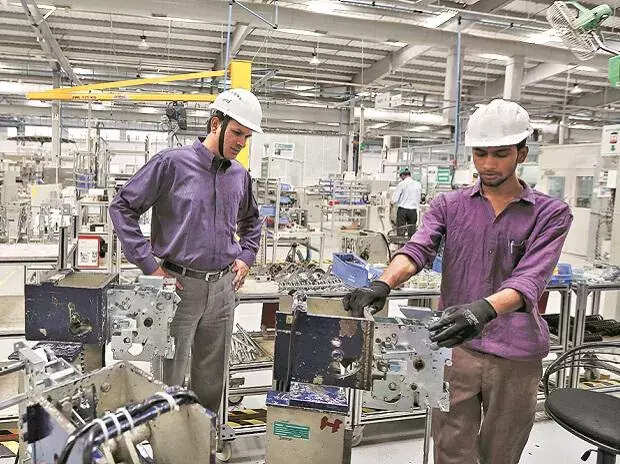
CHENNAI: When Tamil Nadu chief minister M K Stalin met Union minister Piyush Goyal in New Delhi two weeks ago, their discussion centred around textile parks and runaway steel prices.
The agenda mirrored the focus of last month’s state budget which announced a 48% jump in allocations for micro, small and medium enterprises (MSMEs) compared to last fiscal. Policymakers and industrial experts agree that TN can step up the game only when small and medium vendors scale up in segments such as heavy engineering, automotive, textiles and leather.
Plagued by credit availability, high raw material prices and skill shortage, TN’s MSME sector does need urgent attention. “MSMEs are an integral part of the supply chain and for industry to do well, it is important that they do well. Unfortunately, they have been through a very difficult phase in the last couple of years with the Covid-19 lockdowns,” says Srivats Ram, president, Madras Chamber of Commerce & Industry. Industry is clear on what needs to be done.
“If TN has to become $1 trillion economy, its MSMEs need to scale up. That has not happened in 3-4 decades because of too much regulation, small export exposure, poor training of manpower and absence of growth financing,” says Ar Rm Arun, president, Southern India Chamber of Commerce & Industry (SICCI).
The state, he adds, needs to not just focus on greenfield MNC investments, but also brownfield domestic capex. “There are real pain points of cash flow, credit availability, compliance issues and manpower triggers,” he says. All of these need to be sorted out. To its credit, the state government is already on the job.
“We are focusing on two aspects – credit and clusters. We will roll out a state-level credit guarantee scheme in August in partnership with the central government credit guarantee scheme. This will cover commercial banks and NBFCs. We are also working on a credit rating system, which uses electronic data tracking compliance behavior,” says V Arun Roy, MSME secretary to the TN government. Unlike CIBIL scores, it will use data from IT returns and GST bills to work out the risk profile.
“We will start with the Tamil Nadu Industrial Investment Corporation (TIIC), corporative banks and NBFCs and then nationalized banks will slowly join in,” says Roy. The scheme will be operational in a year. On the infrastructure side, the state government is working on mega clusters for precision manufacturing in the Chennai region, pharmaceuticals in Tindivanam and aerospace in Hosur or Coimbatore.
“We are also focusing on micro clusters for segments such as toy making and artificial jewellery,” says Roy. Industry experts say the credit initiatives will make a real difference if more banks and NBFCs come on board. But what’s also needed is a nuanced approach as one size won’t fit all. Take the case of Coimbatore and its three big MSME hubs – textile, foundry and general engineering. The textile business is doing exceptionally well, but the other two are not.
“The foundry segment caters to pump and valve segments primarily. Pumps have been hit by raw material price increase. They need a 20%-25% price hike, which is not being allowed by the OEMs and so capacity utilization is 50%,” says M V Ramesh Babu, president, Coimbatore District Small Industries Association. This, in turn, has affected those at the bottom of the MSME food chain – the micro industries in general engineering who feed the pump makers.
Systemic fixes of payment schedules and raw material pricing are crucial. “There is a 45-day payment schedule, which is never adhered to. Big raw material companies increase prices and operate as a cartel and this squeezes our margins. And getting manpower with adequate skills is difficult. All of these are issues that need attention,” says D Ravi, MD, CMD Precision Products.
The raw material pinch explains why steel figured in the Stalin-Goyal talks. Already, the Centre has allowed raw cotton imports to keep yarn prices in check. For TN’s MSMEs, their time is now.
Also Read:

